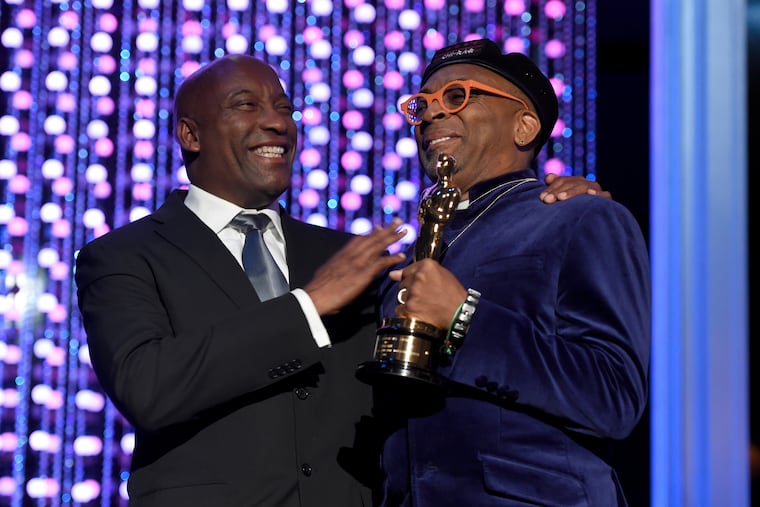John Singleton paved the way for directors of color, like Jordan Peele and Ryan Coogler. They paid tribute to him after his death.
Without John Singleton, there is no Ryan Coogler, who directed 'Creed' and 'Black Panther'

As tributes poured in for the late John Singleton, it's appropriate — poetic justice? — that they included acknowledgments from fellow directors Ava DuVernay and Jordan Peele, whose own paths to commercial and artistic success were cleared by his pioneering work.
Singleton, who died yesterday at age 51, was the first black director to be nominated for an Academy Award for best director for his 1991 movie Boyz N The Hood, drawn loosely from his own experiences growing up in South Central Los Angeles (and expanded from the thesis film he’d made at USC film school).
Peele, Oscar winner for best original screenplay for Get Out, praised Singleton as “a brave artist and a true inspiration. His vision changed everything.”
Duvernay said “He was a giant among us. Kind. Committed. And immensely talented. His films broke ground. His films mattered.”
Singleton himself was one of the first behind-the-camera African American talents to get a shot after Spike Lee, on the success of 1989′s Do The Right Thing, called attention to Hollywood’s exclusionary hiring practices. Lee and Singleton bonded over it, and remained lifelong friends.
“From day one, we have remained close over the decades, cheering each other on in this industry that is not set up for us to win,” Lee posted yesterday.
Ryan Coogler — who directed Creed and Black Panther — has consistently cited Boyz N The Hood as a major inspiration, saying last year: “I was just inconsolable when Ricky died [Morris Chestnut] died. It wasn’t a movie to me, I was seeing black folks on a hundred foot screen. I was just devastated after Boyz.”
Singleton’s influence is clearly scene in Coogler’s breakthrough Fruitvale Station, a tragic true story taken from Coogler’s native Oakland.
» Read More: ‘Fruitvale Station’ takes the measure of a tragic shooting
Singleton pushed boundaries in other important ways. After making a series of personal films — Poetic Justice, Higher Learning, Baby Boy — he also turned toward commercial work, and his success in that arena (Shaft, 2 Fast 2 Furious, Four Brothers), working with big budgets and big casts, had its own pioneering effect — along with the work of F. Gary Gray and Antoine Fuqua — on the reach of directors of color.
Singleton has said that commercial success gives directors more artistic options, and his own helped create space and provide confidence for successors like Coogler, who could more easily see themselves taking up the Rocky franchise, or entering the Marvel Cinematic Universe.
Singleton, who grew up watching drive-in movies in South Central by peeking over the fence, which meant watching without sound, was steeped in the language of film before he entered USC. He liked the idea of using the common language of classic or commercial film to speak to a broad audience.
I spoke to him about the influences for his underrated Rosewood, starring Jon Voight and Ving Rhames, a tough-minded account of a deadly racial battle in Rosewood, Florida in 1923. He talked about using classic Western morality tale The Ox Bow Incident as a model. He knew it was a tough subject, and he wanted to invite audiences into the story by using the common cinematic language of a familiar, accessible genre.
Singleton made fewer films in the most recent decade, but became more attracted to the opportunities to do high quality work on television. He lobbied hard to direct an episode of the FX series The People V. O.J. Simpson: American Crime Story, and did, earning an Emmy nomination and Director’s Guild Nomination.
He also grew into the role of producer, helping create the TV series Snowfall and Rebel.
Singleton is survived by five children.